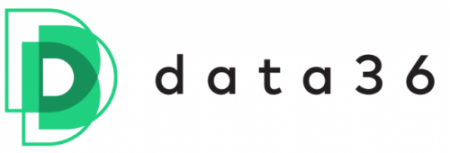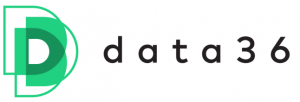Is it important for data scientists to have domain knowledge in a specific field? In this article, I’ll answer this question.
As you might have heard from me many times, data science is at the intersection of three big fields:
- Statistics
- Coding
- Business thinking
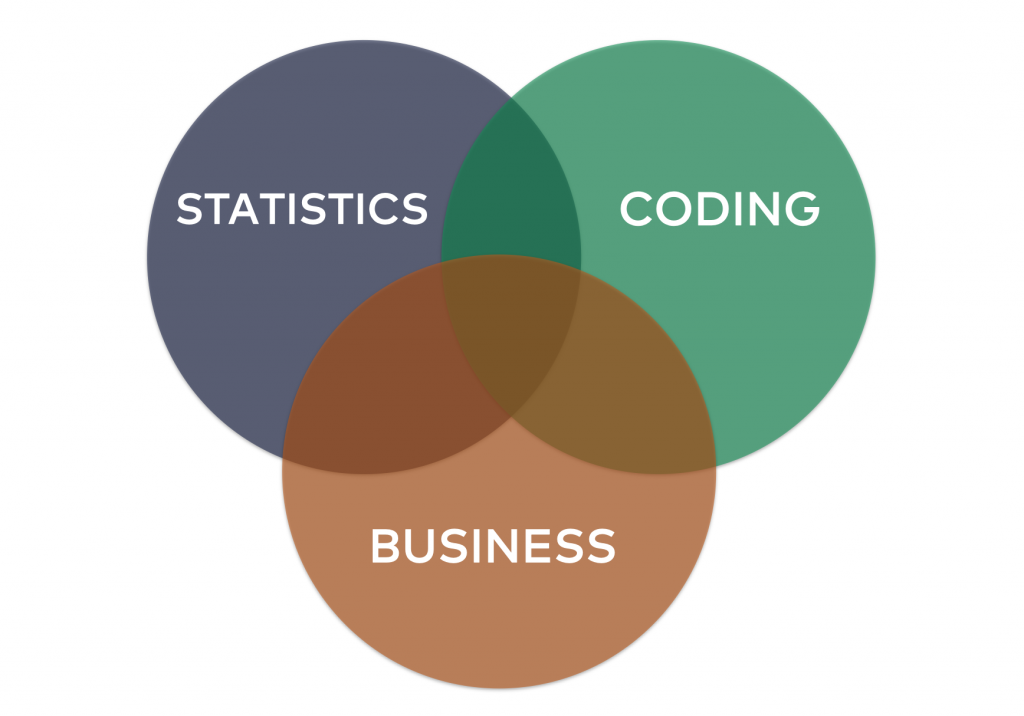
Focusing on business thinking, we can break it further down into two big topics:
- a general business sense: how do you approach a problem, how do you estimate ROI, how do you prioritize, etc.
- domain knowledge: specific expertise in a given field (like online marketing, automotive, logistics, biology, health or anything else…)
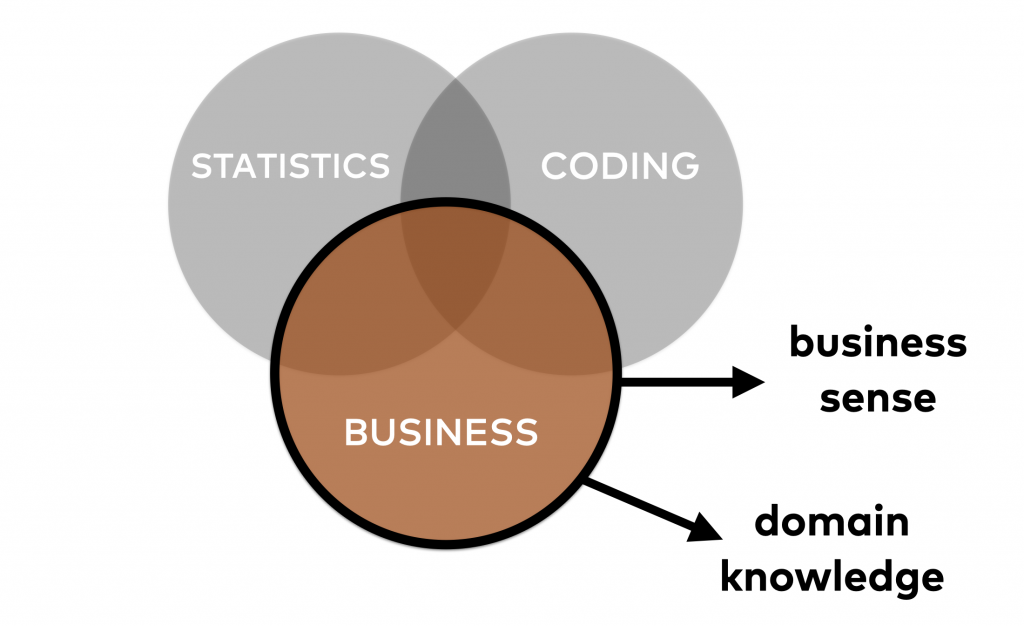
And domain knowledge is important. You can’t come up with meaningful conclusions, and drive results from your data science projects, if you don’t know the business you are in. That’s sort of self-evident.
But how important it is exactly and how much domain knowledge should you have before you apply for a specific data position? In this article I’ll explain everything.
Note: this article is also available in Youtube video format here — and in podcast format here (and on Spotify, iTunes, Google Podcast, etc.)
The ideal applicant vs. the most applicants
Let’s start with the obvious:
If you already have the fundamental data science skills and good domain knowledge in a specific field, that’s a huge advantage! Also, sort of unique.
Let’s say:
- you’ve learned Python, SQL and statistics from online courses
- you have a good sense of business
- and you are fascinated with cars (or even better, you have a BSc in automotive engineering already)
And you have your lucky day, too: a few entry level data scientist positions open up at BMW, Tesla and Toyota, right in the city where you live. Perfect match! Awesome! You just send in your CV and are practically hired.
But the thing is that quite often, you’ll apply for data positions in a different domain than you are good at right now.
Maybe there are no openings in your preferred domain in the city you live in. Maybe you want to try something new. Maybe you realize that you could work on more exciting things in other fields in the long term. Or maybe you don’t have domain experience in any fields yet because this will be your first job.
These are realistic and pretty common scenarios. So if you’ve recognized yourself, don’t worry, just keep reading.
From domain expert to data scientist
Here’s a common case:
You are already an expert in a given domain, you want to stay in this domain and become a data scientist in it. But you don’t have any data skills yet.
I have good news: that’s the best and easiest position to be in.
Why? Because the majority of the things you’ll have to learn, in this case, are hard skills.
Here’s a concrete example.
Let’s say that you are a chemist. You have a Chemistry BSc degree, and five years experience at a pharmaceutical company where you have worked as a research assistant. You haven’t worked with data yet but you have a strong domain knowledge.
That’s awesome because to move towards data science, you’ll have a pretty straightforward roadmap:
- Learn SQL!
- Learn Python!
- Learn statistics!
- …
Okay, I won’t go through the whole roadmap here, but if you want to learn more about it, check out my free mini-course called How to become a data scientist.
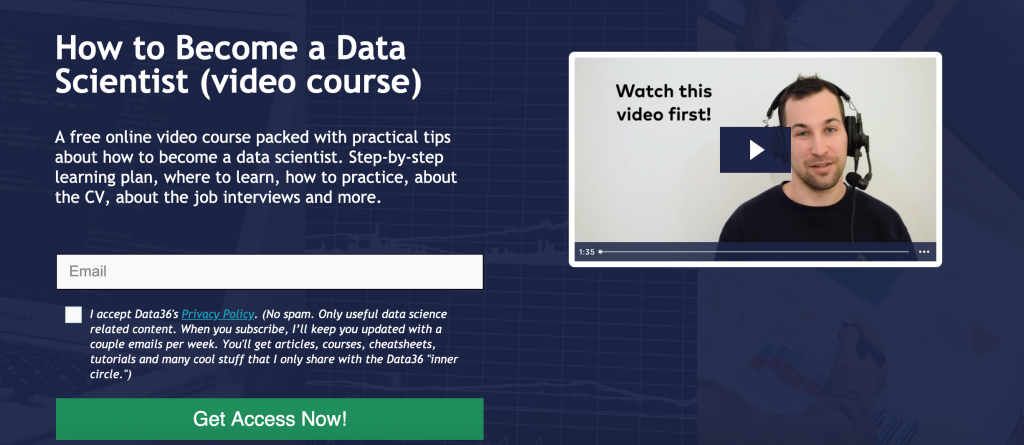
The point is that yes, learning coding and statistics is challenging, it will take a lot of time and energy from you… But it’s still not as difficult as getting five years of experience and domain expertise in the pharma field. In other words, the most difficult part is already done.
So if you have domain knowledge in a specific field already, you want to stay in that field, and you can learn data-science-related hard skills, you’ll stand out compared to others when applying for positions.
If this will be your first job (no domain knowledge at all)
It’s much trickier if you’ve just finished university or high school. Especially if you have a degree that’s not domain-specific (business, statistics, etc.)
In this case, your best chance is to look for internships and be upfront about your lack of domain knowledge. I mean, it’s totally okay, but it means that the first few years of your career will be about learning. Which, by the way, is totally normal if you are freshly graduated.
You shouldn’t focus on salary yet — but on learning about one specific industry. And parallely about data science, either from books and online courses, or if you are lucky, on the job from mentors.
After a few years, you’ll find yourself in a similar position as our dear chemist in the previous example.
Just a quick tip here: if you have choices, pick an internship in a field where you either see yourself in the long term — or that’s broad enough to let you reposition yourself into another domain later.
If you are already working as a data scientist (you have domain knowledge but in another field)
After starting to work as a data scientist, it’ll inevitably happen that you will want to change domains. It happened to me, too:
- First, I worked as a data analyst for a presentation software company.
- Then I worked as an analyst for e-commerce businesses.
- Then I worked as an analyst for a fintech company.
- …
These are all different domains — but they are not too far from each other.
For instance, at my first job at the presentation software company, I was a dedicated data professional on the Customer and Marketing Team. And while the main domain of this company was design and presentations, on that specific team, I picked up some online marketing knowledge, too… That became handy later, when I started to work with e-commerce companies.
And at e-commerce companies, a part of my job was to analyze the efficiency of different online payment solutions. That knowledge helped me to get into the next domain, to a fintech company.
The point is: it’s totally possible to change domains throughout your career. In fact, it’s easier than you’d think. But you can make the transitions smoother if you choose a domain that is a little bit related to your previous ones.
The pro level (when not having domain knowledge is an actual advantage)
I have a few senior data scientist friends (with 10+ years experience) at a data consulting company. They are working on various projects all the time. Sometimes they have to predict real estate prices, other times they try to detect online advertising fraud, and they get involved with agriculture-related data projects, too… They work for so many different industries that it’s almost impossible to be good at all of these.
I recently had a discussion with them on this topic and do you know what they said?
That they actually prefer not having domain knowledge when they get started with a new project. They are such experienced data scientists already that they can connect the dots without in-depth expertise in a given industry… And on the flipside they can take advantage of the out-of-the-box thinking by not knowing the domain-specific benchmarks, best practices and so on.
As they put it:
“In 80% of the cases, we only discover heuristics that the client already knows without analyzing the data. In 15% of the cases, we discover something that’s just noise and won’t be useful. But the other ~4-5% of our findings are those out-of-the-box findings that can be the real game-changers for our clients… Maybe we wouldn’t have found these if we weren’t an external, new set of eyes.”
So not having domain knowledge can be an advantage, too. But let me stress that here, we are talking about senior data scientists with decades of experience under their belts.
Conclusion
Okay, I hope that now you have a better idea of the importance of domain knowledge in data science. It’s a huge advantage if you are an expert in a specific field. If so, you can get hired in that field and later on, you can smoothly transition yourself into other, related industries. And if you don’t have any domain experience yet, you can always get started as an intern and spend the first few years learning.
- If you want to learn more about how to become a data scientist, take my 50-minute video course: How to Become a Data Scientist. (It’s free!)
- Also check out my 6-week online course: The Junior Data Scientist’s First Month video course.
Cheers,
Tomi Mester
Cheers,
Tomi Mester
